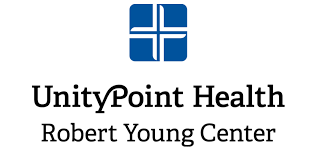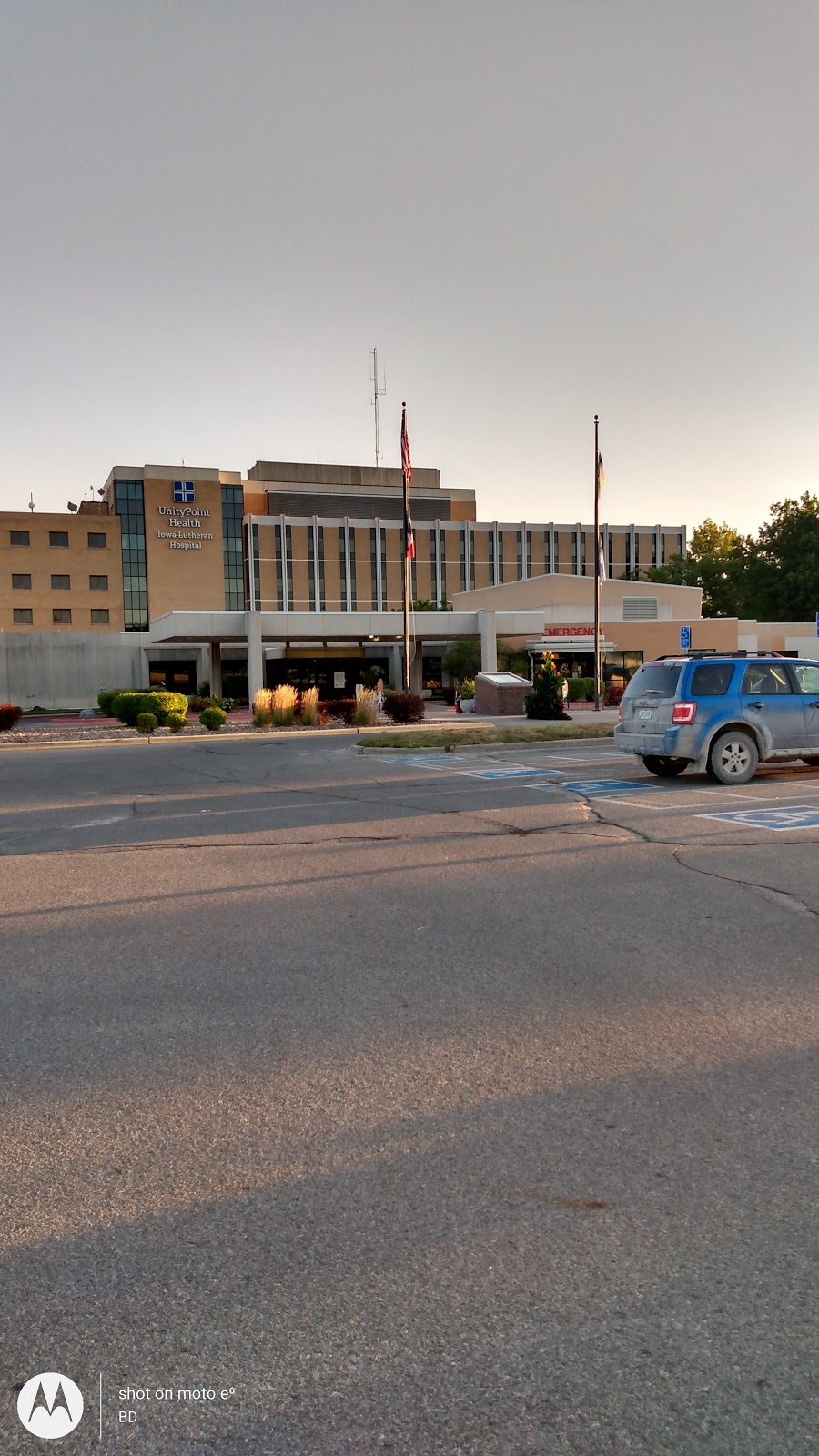Overview
The Robert Young Mental Health Center, located in Moline, Illinois, is a division of UnityPoint Health. It provides comprehensive mental health services to individuals aged 18 and older, as well as specialized care for infants and adolescents. Substance addiction, mental health disorders, and co-occurring disorders comprise the center's primary areas of focus. It offers a comprehensive array of services, including inpatient services, outpatient programs, and community-based mental health support.
Trauma-informed care, cognitive behavioral therapy (CBT), dialectical behavior therapy (DBT), and crisis intervention are among the therapies offered at the center, in addition to individual, group, and family therapy. Additionally, the center offers substance use disorder counseling, telepsychiatry, and medication management. Peer support programs, which involve individuals with lived experiences assisting others in their recovery, are also a critical component of the services provided.
The center operates a Community Support Program that provides case management, life skills training, and employment support to assist individuals with severe psychiatric disabilities in reintegrating into the community. Furthermore, there are specialized programs for crisis intervention and detoxification that are designed to assist individuals in stabilizing their condition and initiating the process of recovery. It is also accredited by The Joint Commission, which is a testament to its dedication to the preservation of exceptional quality of care. Additionally, it collaborates with primary care offices and institutions in the local area to expand mental health services to the broader community.
Robert Young Center at a Glance
Payment Options
- Cash or self-payment
- Medicaid
- Medicare
- State-financed health insurance plan other than Medicaid
- Private health insurance
Assessments
- Comprehensive mental health assessment
- Comprehensive substance use assessment
Age Groups
- Children/adolescents
- Young adults
- Adults
- Seniors
Ancillary Services
- Intensive case management
- Case management service
- Court-ordered outpatient treatment
- Suicide prevention services
Treatment At Robert Young Center

Conditions Treated
Mental health treatment:
Mental health services are essential during treatment for drug and alcohol addiction, whether you receive treatment in an inpatient or outpatient setting. While receiving inpatient care, you can expect to have round-the-clock access to mental health therapists and medical staff. Additionally, you will likely receive a number of different therapies and mental health options like individual and group counseling, addiction and relapse prevention education, and coping skills training.
Substance use treatment:
Substance abuse treatment programs can help to address addiction and, if relevant, any co-occurring mental health conditions. Programs include outpatient, inpatient, dual-diagnosis, and partial hospitalization. The addict will receive therapies like cognitive behavioral therapy, or dialectical behavioral therapy, and sometimes complementary therapies like acupuncture and mindfulness-based therapy. By attending skills training and recovery groups you’ll build a strong foundation for your recovery and strengthen your support network, increasing your chances of long-term recovery success.
Co-occurring Disorders:
Dual-diagnosis rehabilitation centers often offer the most suitable approach for addressing concurrent mental health and substance abuse issues. These facilities typically employ a team of medical and behavioral specialists who utilize a variety of interventions and create a conducive healing environment to support your journey toward lasting recovery. Their comprehensive treatment approach typically encompasses evidence-based therapies such as cognitive-behavioral therapy, recovery support meetings, 12-step facilitation, psychoeducation, skills training, and group therapy to help you achieve and maintain long-term wellness.

Levels Of Care
Partial Hospitalization Program:
A Partial Hospitalization Program (PHP) is an intensive, structured rehabilitation service designed for individuals exhibiting acute symptoms that demand significant intervention but not continuous 24-hour care. Typically spanning 3-5 days a week and lasting from 1 to 6 months, these sessions run for approximately 6 hours a day, focusing on activities like individual and group therapy. Some PHPs provide residential accommodations for overnight stays, while others are non-residential, allowing participants to go home at the end of the day.
Outpatient:
Outpatient programs cater to individuals who are in good medical condition and are not at a heightened risk of relapse, including those who have successfully finished their inpatient treatment. These programs usually build upon clients' existing treatment strategies, providing ongoing addiction counseling and educational support for recovery. Individuals who enter outpatient care right after detoxification may also undergo medical and psychological evaluations, followed by the creation of personalized treatment plans. Most outpatient rehabilitation centers offer various levels of care tailored to meet each client's specific needs.

Treatment Modalities
Couples/family therapy:
Couples Therapy is a specialized form of counseling designed to help couples navigate and improve their relationships. In this therapeutic process, a trained therapist or counselor works with couples to address communication issues, conflicts, and emotional challenges within their partnership. Couples Therapy provides a safe and supportive environment for couples to explore their feelings, understand each other's perspectives, and develop effective strategies for building stronger, more fulfilling connections. It can be instrumental in fostering healthier relationships, enhancing intimacy, and promoting long-term relationship satisfaction.
Group counseling:
Group Counseling is a therapeutic approach where individuals come together under the guidance of a trained counselor to share experiences, offer support, and gain insights. This collective format promotes mutual understanding and growth, allowing participants to learn from one another's perspectives and challenges.
Cognitive behavioral therapy:
Cognitive Behavioral Therapy (CBT) is a form of psychotherapy that emphasizes the critical role of thinking in how we feel and what we do. It aims to identify and challenge distorted or negative thought patterns and behaviors, teaching individuals to replace them with more constructive and rational beliefs. CBT is evidence-based and has been shown to be effective in treating a variety of psychological disorders, including depression, anxiety, and phobias, among others.
Dialectical behavior therapy:
Dialectical Behavior Therapy (DBT) is an evolved version of Cognitive Behavioral Therapy (CBT) that aims to assist individuals in recognizing and influencing the interplay among their thoughts, emotions, and actions. DBT is particularly beneficial for those grappling with self-harming behaviors, including self-inflicted injuries like cutting, as well as suicidal ideations or tendencies. Clinically, it has shown effectiveness in managing intense emotions and conditions such as Borderline Personality Disorder.
Telemedicine/telehealth therapy:
Telehealth Therapy is a remote care option that allows individuals to access mental health services via digital technology, such as secure video conferencing. This mode enables patients to engage with therapists from their homes, offering flexibility and overcoming geographical limitations. Ideal for those in rural areas, with mobility issues, or tight schedules, Telehealth Therapy ensures quality mental health support is always within reach.
Eye Movement Desensitization and Reprocessing therapy:
EMDR is a therapy method initially designed to address trauma. During an EMDR session, patients engage in eye movements reminiscent of REM sleep, either by following a therapist's moving finger or tracking a light bar. These repetitive eye movements aim to aid the brain in reprocessing memories, potentially diminishing the severity of traumatic recollections. As a result, related memories may also heal, leading patients to feel notably more at ease, balanced, and emotionally composed.
Ancillary Services
Languages
- Sign language services for the deaf and hard of hearing
Special Programs
- Persons 18 and older with serious mental illness (SMI)

Additional Locations
Contact Information
DISCLAIMER: The facility name, logo and brand are the property and registered trademarks of Robert Young Center, and are being used for identification and informational purposes only. Use of these names, logos and brands shall not imply endorsement. BetterAddictionCare.com is not affiliated with or sponsored by Robert Young Center.




